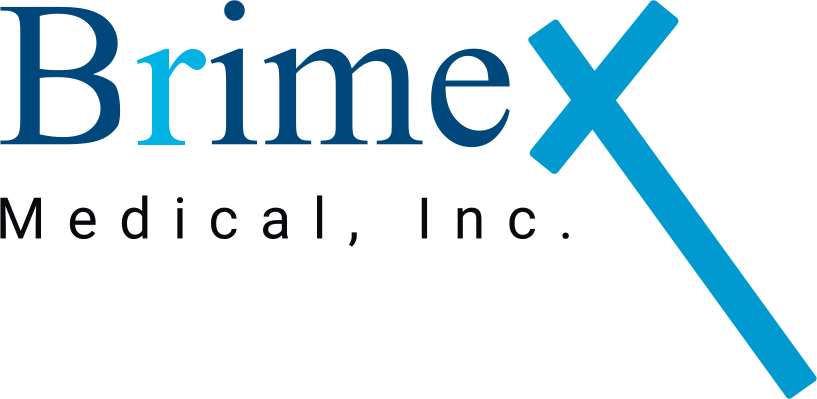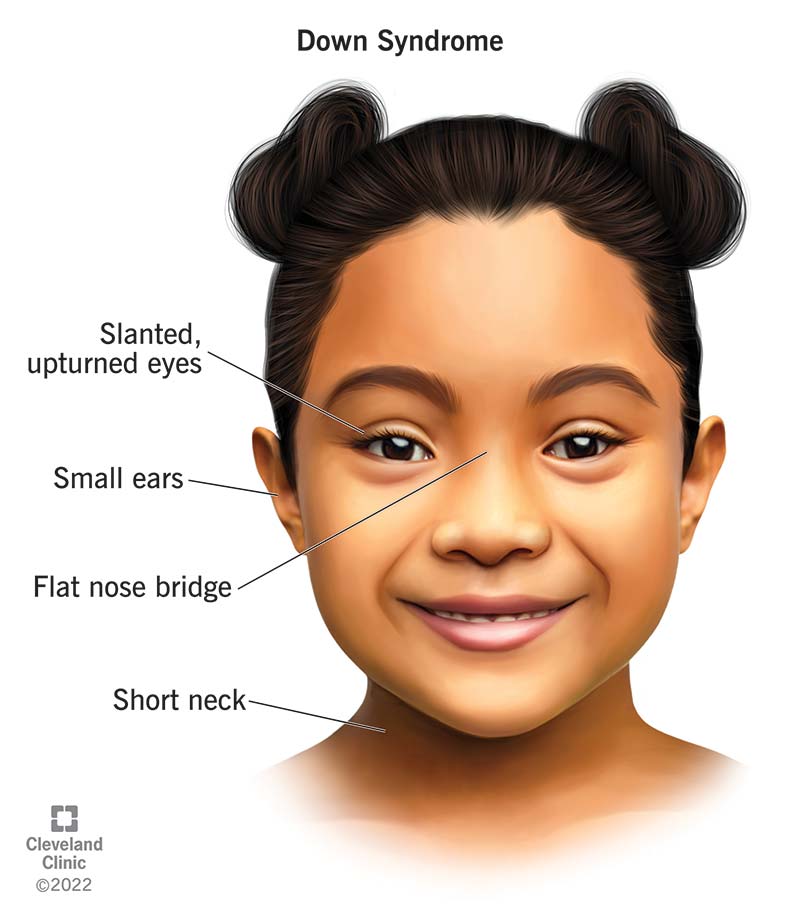Down Syndrome, also known as Trisomy 21, is a genetic condition that occurs when an individual is born with an extra copy of chromosome 21. This additional chromosome alters the course of development, leading to both physical and cognitive changes. While individuals with Down Syndrome face unique challenges, with the right support and care, they can lead fulfilling and happy lives. This blog post will explore the symptoms, causes, and treatment options available, with a focus on the comprehensive services provided by Brimex Medical, Inc. to help individuals with intellectual or developmental disabilities thrive in their communities.
Understanding Down Syndrome
Down Syndrome is the most common chromosomal condition in the United States, affecting approximately 1 in every 700 babies born. This genetic disorder doesn’t stem from anything parents did or didn’t do; instead, it happens randomly during the formation of reproductive cells.
Who Is Affected by Down Syndrome?
Down Syndrome can affect anyone, regardless of race, ethnicity, or socioeconomic status. Although it is a genetic condition, it does not follow traditional inheritance patterns. Most cases of Down Syndrome are sporadic, meaning they occur randomly and are not passed down from parents to children.
Risk Factors
While Down Syndrome can happen to any family, certain factors increase the likelihood. Research shows that the risk of having a child with Down Syndrome increases as the mother’s age rises, particularly after age 35. However, because more babies are born to younger women, the majority of children with Down Syndrome are born to mothers under the age of 35.
Symptoms of Down Syndrome
Down Syndrome manifests in various ways, both physically and cognitively. The severity of these symptoms varies from person to person, and not everyone with Down Syndrome will experience all of them.
Physical Symptoms
Physical characteristics of Down Syndrome are often noticeable at birth and may include:
- Flat nose bridge: A characteristic facial feature.
- Upward-slanting eyes: A distinctive eye shape.
- Short neck: A common feature seen in babies with Down Syndrome.
- Small ears, hands, and feet: These features are often smaller than average.
- Single palmar crease: A single line across the palm, rather than the typical two creases.
- Low muscle tone (hypotonia): Often present in babies, leading to delayed motor skills.
- Short stature: Individuals with Down Syndrome tend to be shorter than their peers.
As children grow, they may also develop conditions such as:
- Hearing loss or ear infections
- Vision problems
- Dental issues
- Obstructive sleep apnea
- Congenital heart disease
These conditions require regular monitoring by healthcare providers to ensure optimal health and development.
Cognitive Symptoms
Cognitive development in individuals with Down Syndrome is often delayed, leading to intellectual or developmental disabilities. These may impact various areas, including:
- Motor skills: Delays in walking, running, and fine motor activities.
- Language development: Speaking may be delayed or impacted by speech disorders.
- Learning abilities: Cognitive challenges may affect the ability to process information and learn new skills.
- Social and emotional development: Skills such as making friends and understanding emotions may develop later.
These challenges mean that milestones, such as speaking the first words, taking the first steps, or toilet training, might be reached later than other children. However, with early intervention and support, many individuals with Down Syndrome can achieve significant milestones.
Behavioral Symptoms
Behavioral symptoms may arise as a result of communication barriers or frustration. These behaviors might include:
- Stubbornness or tantrums
- Short attention span
- Obsessive-compulsive tendencies
Understanding and addressing these behaviors early can make a significant difference in a child’s development. At Brimex Medical, Inc., our intellectual and developmental disability support services focus on providing the necessary tools to help manage these behaviors effectively.
Causes of Down Syndrome
The root cause of Down Syndrome is an extra chromosome. Humans typically have 46 chromosomes, organized into 23 pairs. Individuals with Down Syndrome have an extra copy of chromosome 21 in all or some of their cells.
Types of Down Syndrome
There are three main types of Down Syndrome:
- Trisomy 21: This is the most common type, accounting for about 95% of cases. It occurs when all cells in the body contain an extra chromosome 21.
- Translocation Down Syndrome: This occurs when a full or partial chromosome 21 attaches to another chromosome. It accounts for about 4% of cases.
- Mosaic Down Syndrome: The rarest form, affecting less than 1% of cases, occurs when only some cells have the extra chromosome.
Diagnosing Down Syndrome
Down Syndrome can be diagnosed both before and after birth.
Prenatal Screening and Diagnostic Tests
Prenatal screening tests can estimate the likelihood of Down Syndrome, while diagnostic tests can confirm it. These tests include:
- Blood tests and ultrasounds: Screening tests during pregnancy can identify markers that suggest an increased risk.
- Amniocentesis and chorionic villus sampling (CVS): These diagnostic tests can definitively diagnose Down Syndrome during pregnancy by examining the chromosomes of fetal cells.
Postnatal Diagnosis
After birth, a physical examination can reveal the characteristic signs of Down Syndrome. A blood test, known as a karyotype, can confirm the diagnosis by analyzing the baby’s chromosomes.
Treatment and Support for Down Syndrome
While there is no cure for Down Syndrome, various treatments and therapies can help individuals reach their full potential. Brimex Medical, Inc. is dedicated to providing comprehensive services that promote the well-being of those with Down Syndrome.
Early Intervention
Early intervention services are crucial for children with Down Syndrome. These services can include:
- Physical therapy: To strengthen muscles and improve motor skills.
- Speech therapy: To enhance communication abilities.
- Occupational therapy: To help with daily living skills and fine motor tasks.
- Special education programs: To support cognitive and social development in school settings.
At Brimex Medical, Inc., we believe that early intervention sets the foundation for a fulfilling life. Our team of specialists works closely with families to create tailored care plans that meet the unique needs of each child.
Managing Associated Medical Conditions
Individuals with Down Syndrome are at a higher risk for various medical conditions, including:
- Heart defects: Congenital heart disease is common, and regular monitoring is essential.
- Thyroid disorders: Regular screenings can detect and manage thyroid issues.
- Gastrointestinal problems: Conditions like celiac disease and constipation may require dietary adjustments.
- Autism spectrum disorder: Some individuals with Down Syndrome may also have autism, which requires specialized support.
Brimex Medical, Inc. offers a multidisciplinary approach, ensuring that every aspect of a patient’s health is addressed.
Long-Term Care and Support
As individuals with Down Syndrome grow older, they may require ongoing support. This includes assistance with:
- Education and employment: Specialized programs can help individuals with Down Syndrome find meaningful work and live independently.
- Social integration: Encouraging participation in community activities can foster social connections and a sense of belonging.
- Health monitoring: Regular check-ups are vital to manage any health concerns that may arise.
At Brimex Medical, Inc., our mission is to empower individuals with Down Syndrome to live independently and confidently. We offer a range of services that promote lifelong health and well-being.
Living with Down Syndrome
Children and adults with Down Syndrome can lead happy, fulfilling lives with the right support. Many go on to graduate from high school, find employment, and form meaningful relationships. Organizations like the National Down Syndrome Society and the National Association for Down Syndrome provide valuable resources for families and caregivers.
At Brimex Medical, Inc., we are committed to supporting individuals with Down Syndrome and their families. Our intellectual and developmental disability support services are designed to help each person reach their full potential and find their rightful place in the community.
Conclusion
Down Syndrome is a lifelong condition that presents unique challenges, but with the right care and support, individuals can thrive. Brimex Medical, Inc. is here to provide comprehensive services that promote health, well-being, and community integration. If you or a loved one is living with Down Syndrome, reach out to us today to learn more about how we can help.

